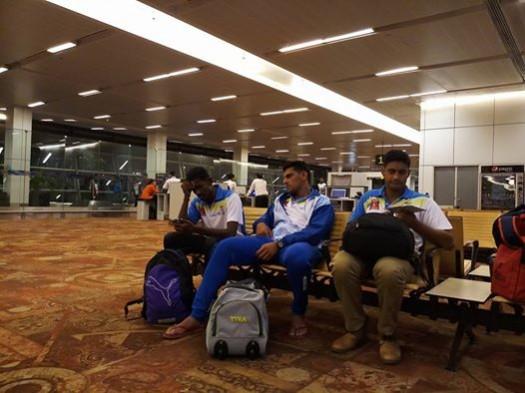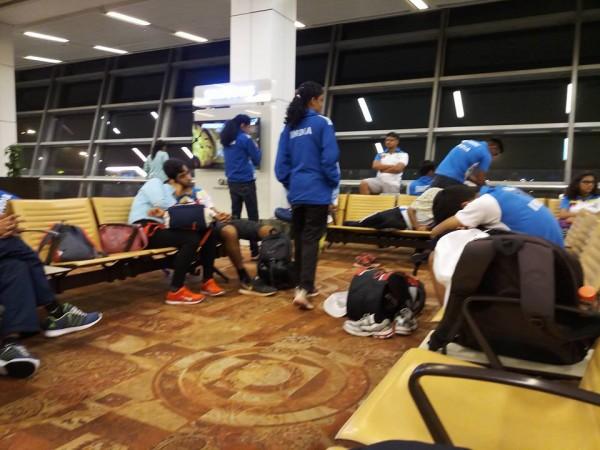Till the end of the first week, there was no ray of hope. But on the eighth day, India's golden Deaflympians made the country immensely proud by bagging one gold and two bronzes to jump to the nineteenth place in the medals' tally. Russia were leading the table with 123 medals, including 56 golds, and look certain to maintain their lead for the remaining five days of the competition. Ukraine were a distant second with 60 medals.

India's performance at the 13th Deaflympics being held between July 1 and 30 at Samsun in Turkey is their best ever. India had won their first-ever medal at the Olympics for the deaf and mute in Melbourne in 2005 when Virender Singh grabbed a gold. In the 2009 edition held in Taipei, India settled for a bronze and it was Singh again who had brought his country a gold in the 2013 edition held in Sofia, Bulgaria.
The result in 2017, however, eclipsed the past and it was precisely what Ketan Shah, project officer and interpreter at All India Sports Council for the Deaf (AISCD), had predicted. This IBT correspondent met him at the New Delhi airport on July 16, when he was about to take off for Turkey with a team of around 50 players, all young and exuberant about the big show.
"The current government has taken a bigger interest in promoting the players for Deaflympics compared to the previous one. The preparation camps have been more rigorous this time and we have picked the best," Shah said. He also used the occasion to praise Prime Minister Narendra Modi's interest in sports. He mentioned the mega sporting event called Khel Mahakumbh which Modi had organised during his days of chief ministership in Gujarat, saying such events really help in nurturing sportsmen on a large scale.
Shah also introduced with some of the coaches and mentors who were with the contingent, some of whom have won awards as well. "It is not easy to train these players for besides the technical training, one also has to communicate with them on the right note. But our coaches have done the job remarkably well," Shah added.
'The challenged sportsmen do not have an easy life'
However, a better preparation doesn't mean that the deaf sportsmen are leading rosy lives. "Most of these players come from poor and moderate backgrounds. Besides, there is bad infrastructure and as I said, the problem of interpretation. These are real challenges on the way of their moving up," another AISCD official said.

Shah was also disappointed with the nature of coverage events like Deafylimpics get in the media. "I am sorry to say but the media is not much interested to give much coverage to these players and their hard work," Shah said.
'I don't consider cricket a sport'
The mention of cricket, the most followed game in India, became inevitable at this point of the discussion. "Cricket gets so much coverage but not much for others. I do not even consider cricket as a sport," said a dejected VK Agarwal, the Deafylimpics team's table tennis coach.
India are taking part in eight disciplines in the Samsun edition and it features a total of 114 countries. We sincerely hope that the Indian players add more to their tally and make their countrymen proud.














